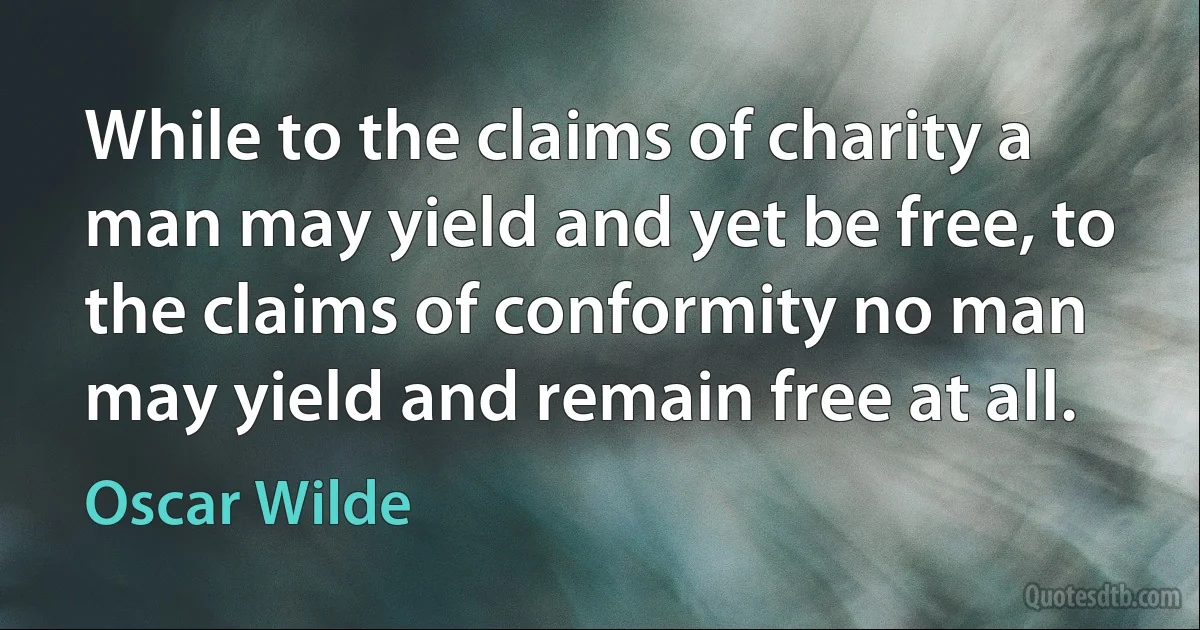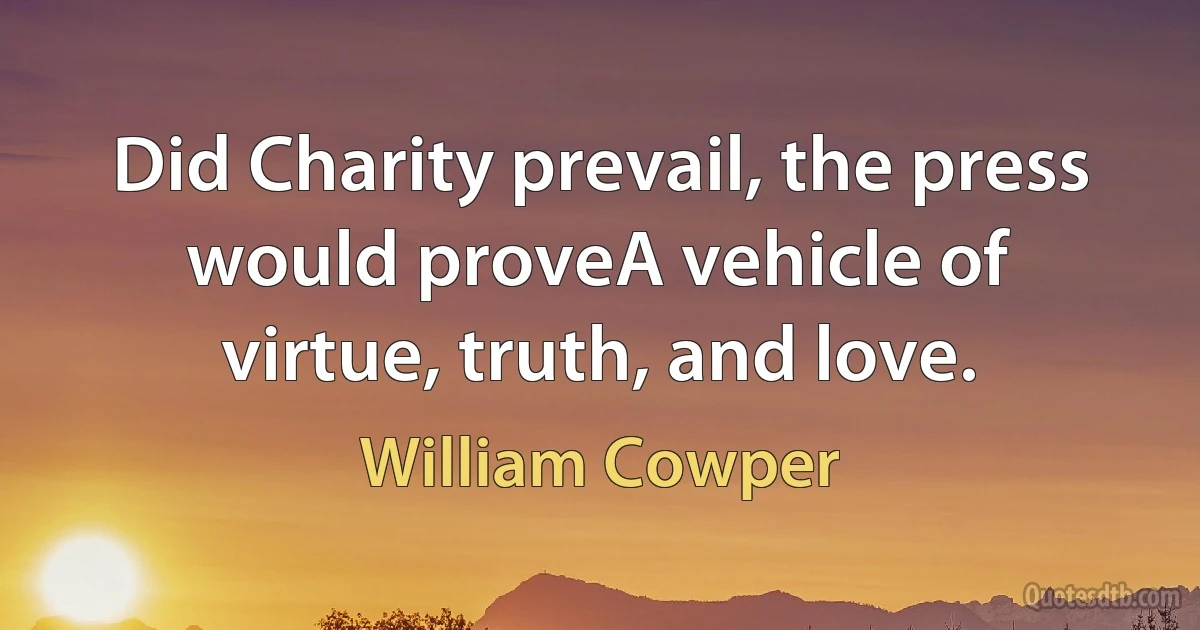Charity Quotes - page 22
Love - caritas - is an extraordinary force which leads people to opt for courageous and generous engagement in the field of justice and peace. It is a force that has its origin in God, Eternal Love and Absolute Truth. Each person finds his good by adherence to God's plan for him, in order to realize it fully: in this plan, he finds his truth, and through adherence to this truth he becomes free (cf. Jn 8:32). To defend the truth, to articulate it with humility and conviction, and to bear witness to it in life are therefore exacting and indispensable forms of charity. Charity, in fact, "rejoices in the truth”.

Pope Benedict XVI
Only in truth does charity shine forth, only in truth can charity be authentically lived. Truth is the light that gives meaning and value to charity. That light is both the light of reason and the light of faith, through which the intellect attains to the natural and supernatural truth of charity: it grasps its meaning as gift, acceptance, and communion. Without truth, charity degenerates into sentimentality. Love becomes an empty shell, to be filled in an arbitrary way. In a culture without truth, this is the fatal risk facing love. It falls prey to contingent subjective emotions and opinions, the word "love” is abused and distorted, to the point where it comes to mean the opposite. Truth frees charity from the constraints of an emotionalism that deprives it of relational and social content, and of a fideism that deprives it of human and universal breathing-space.

Pope Benedict XVI
[Talking about the royal family] 'Cause they got in at '52, and then immediately the Queen introduced the new ... then in the '60s, the Queen decided to change the way that ... and she encouraged people to ... and in the '70s she completely redistributed ... and realised she had too much wealth, so she decided to ... then in the '80s, they set up a charity to do ... and then they encouraged other people to ... and in the '90s, they just totally relaxed, and they said, "Everyone, why don't you ..." And then in the 2000s, they've set a great example by ... stop me at any point. I think she's got 20 years left. She's in there, but she essentially does what she does on the stamps.

Eddie Izzard
I don't involve myself in politics, my daily life is devoted to charity and social work. Apart from that I help my loved ones to live better, that's true. I never wanted to harm anyone. I deplore the fact that people have forgotten that for 23 years their lives improved greatly ... and Tunisia became a modern country. I hope that my compatriots will render me justice by remembering the journey we undertook together. I hope that in the twilight of my life I will retain my honour.

Leila Ben Ali
As each Sister is to become a Co-Worker of Christ in the slums, each ought to understand what God and the Missionaries of Charity expect from her. Let Christ radiate and live his life in her and through her in the slums. Let the poor, seeing her, be drawn to Christ and invite him to enter their homes and their lives. Let the sick and suffering find in her a real angel of comfort and consolation. Let the little ones of the streets cling to her because she reminds them of him, the friend of the little ones.

Mother Teresa
It is never the end for which other powers are exercised, but a means by which other objects are accomplished. No contributions are made to charity for the sake of an incorporation, but a corporation is created to administer the charity; no seminary of learning is instituted in order to be incorporated, but the corporate character is conferred to subserve the purposes of education. No city was ever built with the sole object of being incorporated, but is incorporated as affording the best means of being well governed. The power of creating a corporation is never used for its own sake, but for the purpose of effecting something else. No sufficient reason is therefore perceived why it may not pass as incidental to those powers which are expressly given if it be a direct mode of executing them.

John Marshall
It is by no means enough that an officer of the Navy should be a capable mariner. He must be that, of course, but also a great deal more. He should be as well a gentleman of liberal education, refined manners, punctilious courtesy, and the nicest sense of personal honor.
He should be the soul of tact, patience, justice, firmness, kindness, and charity. No meritorious act of a subordinate should escape his attention or be left to pass without its reward, even if the reward is only a word of approval. Conversely, he should not be blind to a single fault in any subordinate, though at the same time, he should be quick and unfailing to distinguish error from malice, thoughtlessness from incompetency, and well meant shortcomings from heedless or stupid blunder.
In one word, every commander should keep constantly before him the great truth, that to be well obeyed, he must be perfectly esteemed.

John Paul Jones
Considering how much we are all given to discuss the characters of others, and discuss them often not in the strictest spirit of charity, it is singular how little we are inclined to think that others can speak ill-naturedly of us, and how angry and hurt we are when proof reaches us that they have done so.

Anthony Trollope



